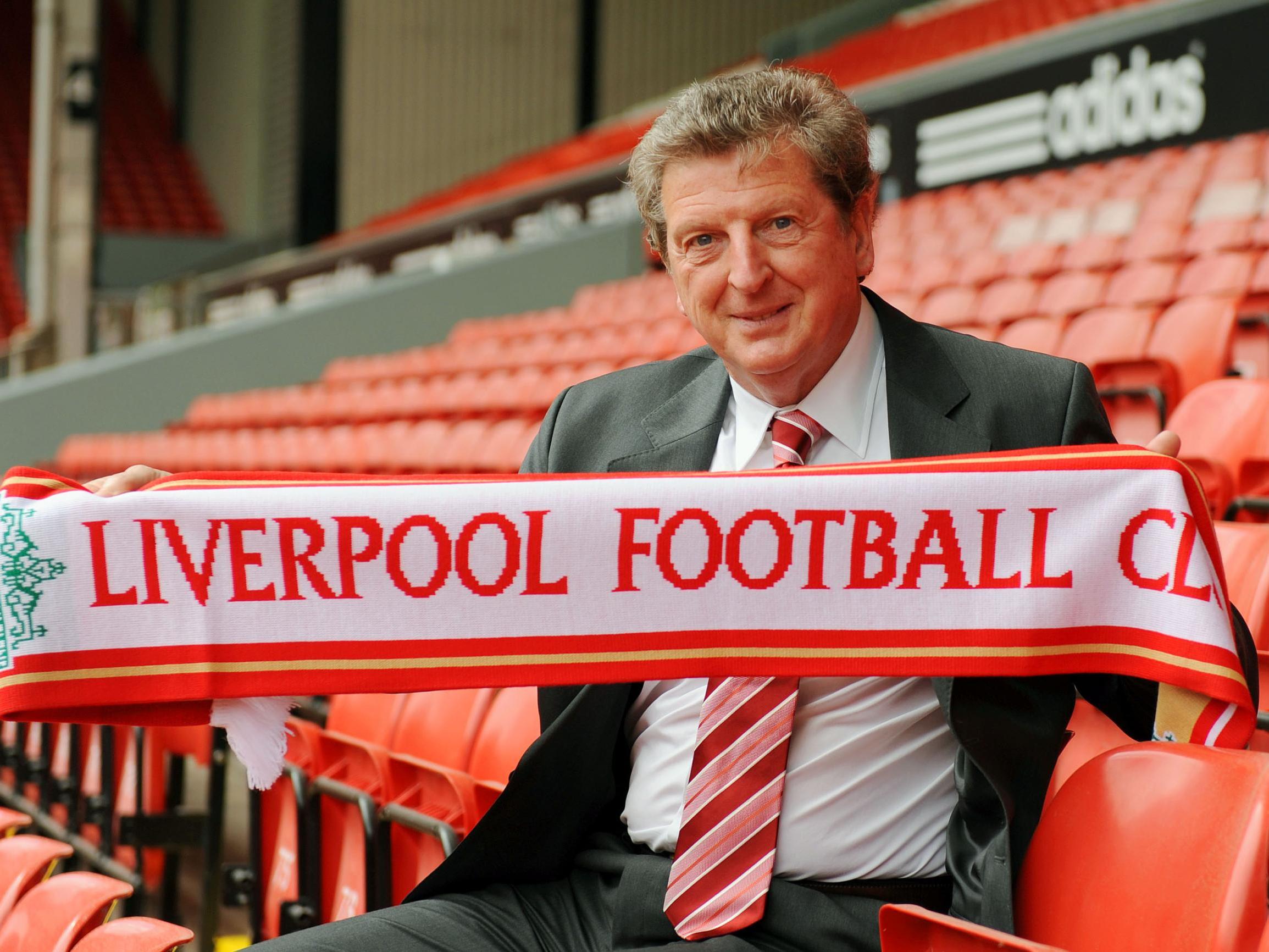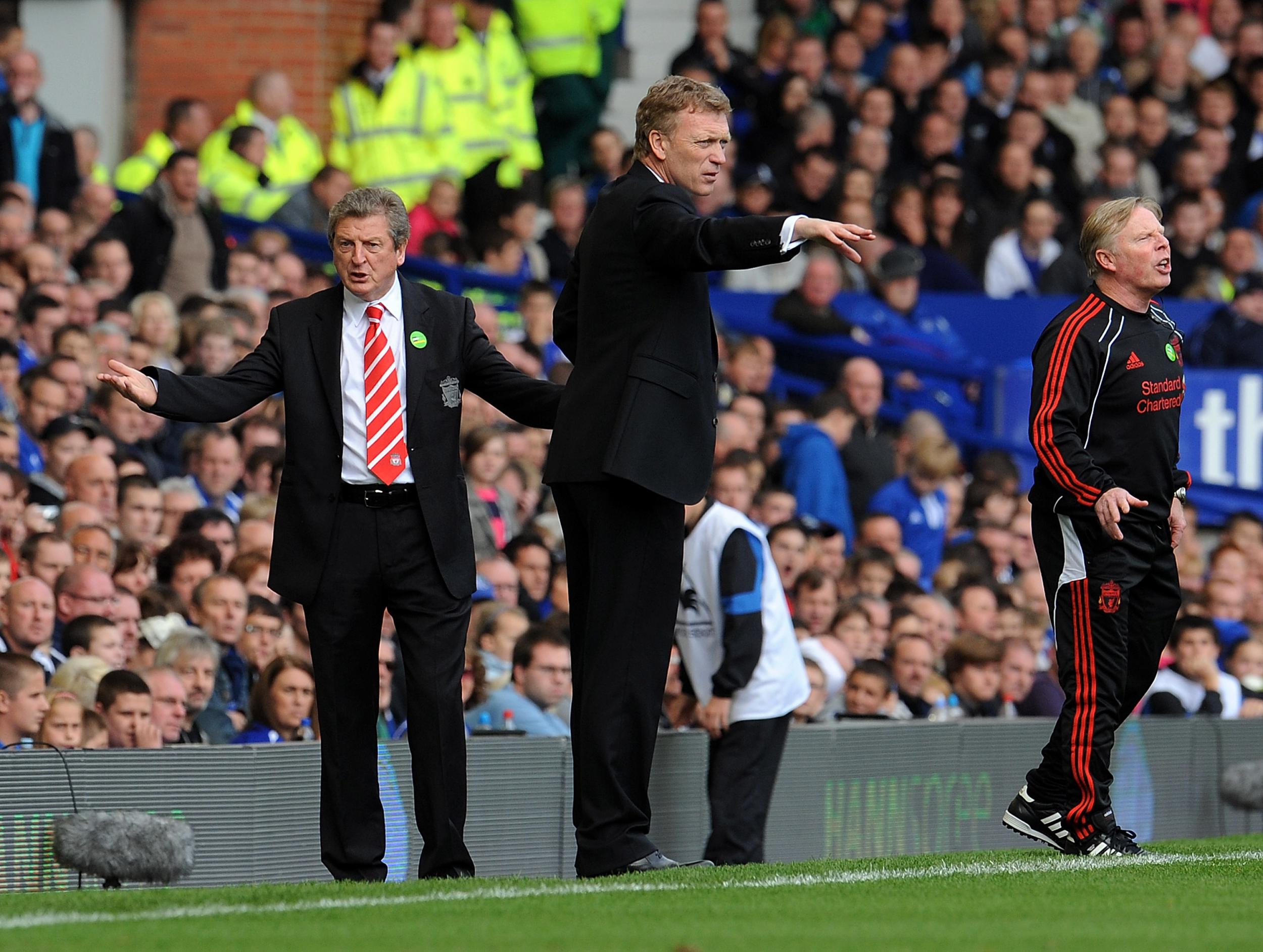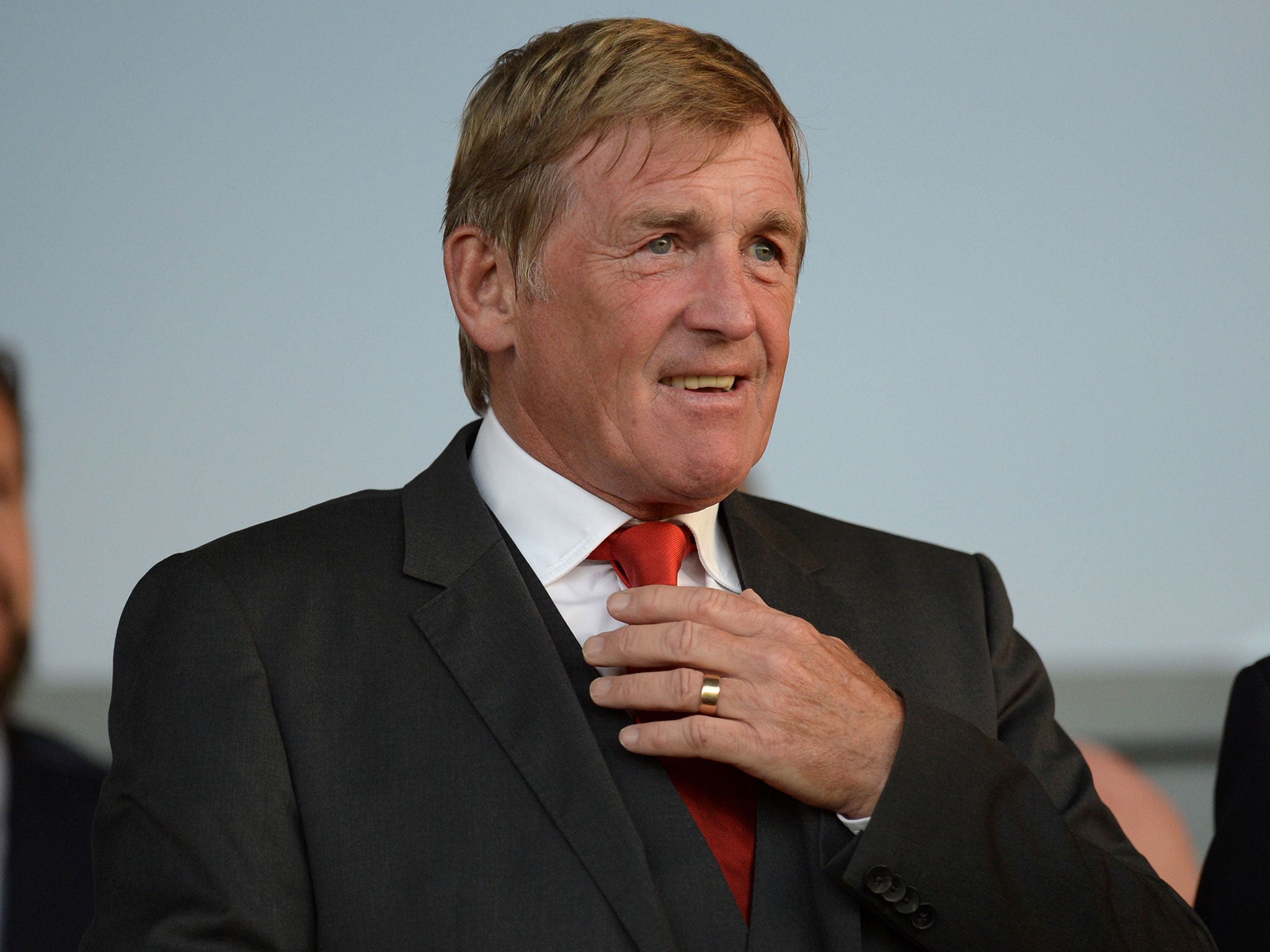Roy Hodgson’s troubled Liverpool reign: A story of muddled messages losing the hearts and minds of Anfield
Ahead of the Crystal Palace manager Roy Hodgson’s meeting with Liverpool on Monday, Simon Hughes remembers his time on Merseyside and the shortest managerial reign in the club’s history

Your support helps us to tell the story
From reproductive rights to climate change to Big Tech, The Independent is on the ground when the story is developing. Whether it's investigating the financials of Elon Musk's pro-Trump PAC or producing our latest documentary, 'The A Word', which shines a light on the American women fighting for reproductive rights, we know how important it is to parse out the facts from the messaging.
At such a critical moment in US history, we need reporters on the ground. Your donation allows us to keep sending journalists to speak to both sides of the story.
The Independent is trusted by Americans across the entire political spectrum. And unlike many other quality news outlets, we choose not to lock Americans out of our reporting and analysis with paywalls. We believe quality journalism should be available to everyone, paid for by those who can afford it.
Your support makes all the difference.It was August Bank Holiday eight summers ago and Roy Hodgson was having dinner with his wife Sheila at Quarter, a hazily-lit restaurant that serves pastas and pizzas beside the cobblestones of Falkner Street in Liverpool’s Georgian district.
His team had narrowly beaten West Bromwich Albion earlier in the day – his first league victory as Liverpool manager in three attempts. Hodgson would feel this sense of peaceful satisfaction only once because by the time the next league win came eight weeks later against Blackburn Rovers it was the end of October, Liverpool were still in the relegation zone and by then the calls for him to go were becoming more audible.
Hodgson was dressed officially in his red Liverpool tie, though uncharacteristically the top button of his white shirt was unfastened. He had come straight from work, he was not trying to hide but nobody other than Sheila was starting conversations with him. Quarter is a family sort of restaurant. He left through the front entrance, jingling the keys in his pocket like a caretaker as he passed a dozen or so tables. He was not stopped. Either nobody noticed him, or nobody cared that he was there.
He had been Liverpool’s manager for nearly two months by then. His entrance had trailed Rafael Benítez’s departure amidst a scene of dire uncertainty at ownership level. There was some mitigation. No manager before him had arrived at a point where the banks were questioning whether the club could see out the season.
Christian Purslow, Liverpool’s managing director, fancied himself as a knowledgeable football person and decided that Hodgson offered reasonableness in the aftermath of Benítez who by the end, it was assessed by Purslow, had fallen out with most of the players during a campaign where his team did not qualify for the Champions League for the first time in six years. Hodgson supposedly brought with him from Fulham continental pedigree having managed everywhere from Udine to UAE. The season before, Fulham had improbably reached the Europa League final, losing to Atlético Madrid.
At his introductory press conference in the old main stand’s trophy room, he sat at a table that was positioned just in front of a wall of photographs and oil paintings. Bill Shankly was looking over him. The question came: “Who are you biggest coaching influences, Roy?” It was an easy one to answer and Hodgson did not need to ponder. He reached into his soul and picked out two managers with links to London rather than Scotland: “That will be Don Howe and Dave Sexton,” he responded enthusiastically. Even Ronny Rosenthal would have scored in front of that open goal.
It was not publicised much then but Hodgson’s wife was from Liverpool and born into a family of Evertonians. He should have known about the mood and expectations at Anfield. There are things you say and things you do not. There was no battle for hearts and minds because Hodgson did not attempt to engage in one. He would soon tell a locally-born journalist working for a national newspaper that his “problem” was that he was “too Scouse”.

Maybe it was simply that Liverpool was too Scouse for Hodgson, a Croydon native who is now doing well as Crystal Palace’s manager, a club he can relate to. “He just couldn’t help being Hodgson,” remembers Mike Nevin, a writer with the Anfield Wrap.
He would later claim that every Liverpool supporter wanted Kenny Dalglish to replace Benítez but that was not true. At the beginning, his appointment was underwhelming but there was a wish for him to succeed. He would lose the confidence of many not only because of his results but also because of his manner and his messages.
Against FK Rabotnicki he possessed the positivity of a man heading for the guillotine rather that someone approaching his first competitive game at the biggest job of his career, suggesting it was “far from certain” Liverpool would emerge unscathed against an opponent that had edged past the mysterious sounding FC Mika from Armenia in the previous round. Hodgson was in a prickly mood, complaining about the depth of his media commitments. “All we ever seem to do at Liverpool is have discussions,” he moaned.
It was a World Cup year, which impacted on availability, but Hodgson’s first team selection for Liverpool had the stench of relegation: Cavalieri; Kelly, Skrtel, Kyrgiakos, Agger; Aquilani, Lucas, Spearing; Amoo, N’Gog, Jovanović. In fairness, none of these players had been his signings. He does not have the same excuse with Christian Poulsen and Paul Konchesky – players he had managed before. In another world, Luke Young might have been added to that list.
Hodgson was received on Merseyside as a cross between Alan Whicker and Quentin Crisp. He was interested in literature and unafraid to talk about his passions outside of football. This was a time of political activism at Liverpool, where words were great weapons. And yet Hodgson did not give the impression that he appreciated what was going on around him or how to convince anyone through concise articulation of his thoughts. There was an acknowledgement inside the club that he tended to say too much when he needed only to say less and said too little when he needed to elaborate. He never seemed to say the right thing when it really mattered and it did not help that he tended not to listen to advice. He did not seem like a man in control.
When a Turkish cameraman decided to start packing away his gear in the middle of a press conference before a game with Trabzonspor, Hodgson interjected with humour by saying, “Don’t worry, we can work around you,” and the room laughed. By then, however, he’d delivered an assessment of the away leg victory with less measure, labelling the Europa League qualifier as “another famous European night”.
Similar unusual statements would follow. “They’ll be a formidable challenge,” he said before losing at home on penalties to fourth tier Northampton Town in the League Cup, a game played in driving night rain where Hodgson instructed his defenders to “just f***king launch it,” according to those sitting soaking wet and miserable in the main stand.
“The protest does not help,” he would warn on Liverpool’s supporters stance against American owners Tom Hicks and George Gillett, owners that were taking Liverpool towards potential administration and maybe a points deduction – or much worse.

When Alex Ferguson accused Fernando Torres of diving, Hodgson did not even attempt to put the Manchester United manager in his place, and rather sounded like he was in tacit agreement: “Sir Alex is entitled to any opinion he wants to have but I’m not going to come here and say I agree or disagree,” he said deferentially. “I thought the referee refereed the game very well and I have a very ambivalent attitude to those type of things.”
Meanwhile, he would describe Jose Mourinho as “a great man” like he was circus ringmaster. It sounded like Hodgson was willing to get fired from a cannon by the Great Mourinho because he’d apparently been right about the challenges at Liverpool where there was a possibility that it would get “worse and worse”.
And then there was Everton, whose last victory in a Merseyside derby came under Hodgson’s spell. Following a 2-0 defeat where Liverpool were bullied and out-skilled at Goodison Park, there was a car crash of a post-match press conference where he asked for the press room window to be shut, presumably to muffle out the sound of Evertonians gleefully singing “Going down, going down,” from the Winslow Pub. He would later sneer at a Norwegian journalist for asking him a question about his future – telling him Norway was a country he never wished to manage in again. Between those moments, there was time for this bewildering reflection: “That was as good we’ve played all season,” Hodgson insisted. “I have no qualms about the performance whatsoever. To get a result here would have been utopia. But I can only analyse the performance. There is no point into trying to analyse dreams.” With that, a highly respected broadcaster – someone who had covered Liverpool since the days of Bill Shankly – was heard at the back of the room offering his own instinctive reaction: “Dear god!” he recoiled.
There are other stories, ranging from well-known ones like the time Hodgson insisted Torres would definitely play against Utrecht only to be overruled by the new-to-the-job Australian club doctor Peter Bruckner, to lesser ones like the time he walked past John McMahon soon after his arrival and abruptly asked the reserve team manager to identify himself.
Hodgson was more popular amongst senior first team players than many of his critics would imagine, with Steven Gerrard and Jamie Carragher understanding that many of the problems at Liverpool were not of his making. Even Torres, someone who would soon leave Anfield amidst claims that playing for Hodgson had pushed him closer to the exit, would later credit him for at least being honest with him while others like Purslow and Damien Comolli, the director of football, were supposedly not.

He would last until the first week of January. In mid-November, the word that would haunt Hodgson appeared clearly for the first time following a pitiful performance in a defeat at Stoke. That word from the away end would be “Dalglish”.
Then, on a murky night at Anfield between Christmas and new year – and with attendances falling – Liverpool lost to bottom-placed Wolverhampton Wanderers. For the first time, Hodgson would hear his name chanted by the Kop. “Hodgson for England,” came a cry that would appear again the following Wednesday at Blackburn where another defeat left Liverpool 12th. When the Blackburn supporters chanted “You’re getting sacked in the morning”, those that had travelled from Liverpool joined in. His departure would ultimately be announced on the Saturday and it would represent the shortest managerial reign in the club’s history.
Join our commenting forum
Join thought-provoking conversations, follow other Independent readers and see their replies
Comments